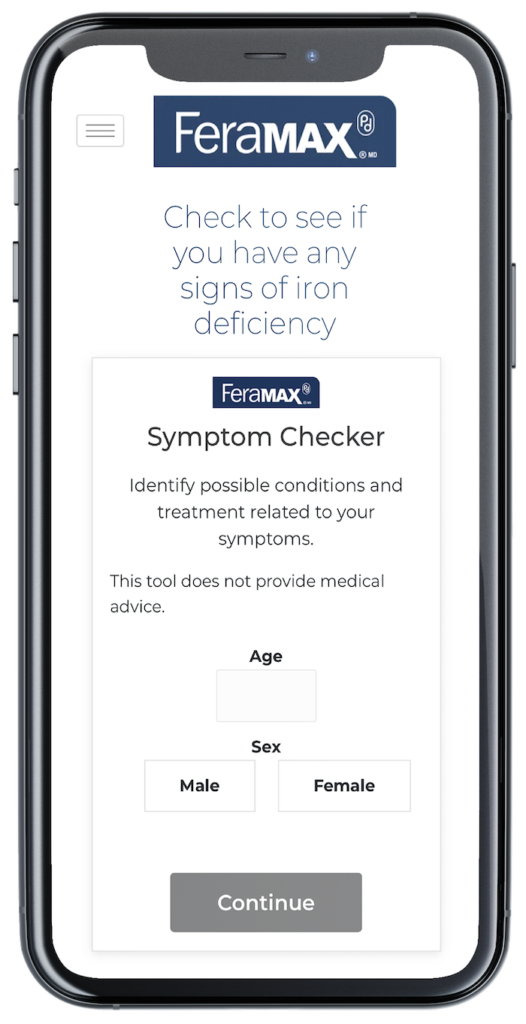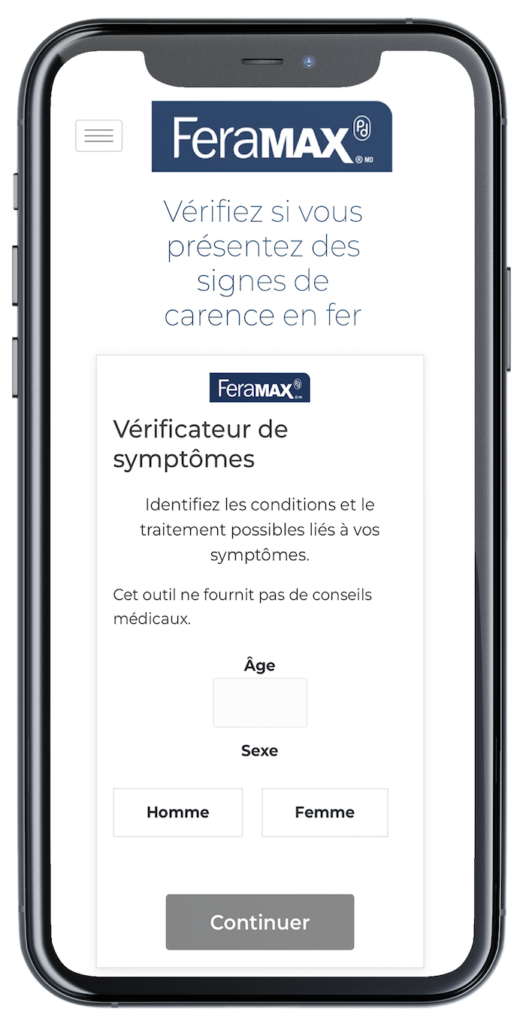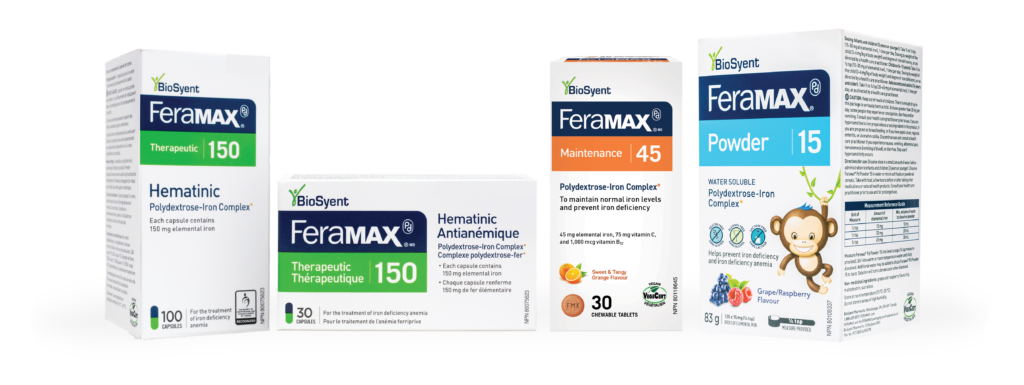Symptoms of Iron Deficiency
What Are the Symptoms of Iron Deficiency?
In nearly every instance of low iron and iron deficiency anemia, patients suffer from one or more of the following:
- Tiredness
- Insomnia
- Irritability or emotional mood swings
- Trouble sleeping
- Weakness
- Decreased appetite
- Headaches
- Low exercise tolerance
- Pronounced lack of energy
- Skin pigmentation decreased around the eyes, in the mouth and gums
- Fingernails may become thin and fragile, become white, and change shape
- Hair loss, or hair may become brittle, weak, and dull
- Inflammation of the structure of the mouth (cheeks, gums, tongue, lips, throat and roof or floor of the mouth)
- Pica (strong craving for non-food items such as soil, metal coins, or paint is present)
Changes in the physical appearance of iron deficient individuals are often accompanied by cardio-vascular symptoms.
Iron deficiency is quite common, with around 20% of the world’s population being affected by it at some point in their lives. Nicole Osinga is a registered dietician, read her story about being diagnosed with iron deficiency here.
Some of the common causes of iron deficiency include:
- Insufficient nutritional intake
- Blood loss due to menstruation or injury
- Drug interactions
- Dietary iron absorption interference
- The presence of certain diseases or disorders
Iron is a building block of hemoglobin, and a vital component of our body’s natural oxygen delivery system. Hemoglobin is an oxygen-binding protein found within red blood cells, and is responsible for the collection of oxygen molecules from the lungs for delivery throughout the body.
Maintaining good oxygenation requires iron to make hemoglobin, folic acid and B12 to make red blood cells, healthy lungs to allow oxygen exchange, and a healthy heart to pump the red blood cells where they need to go. A problem with any of these components will lead to a reduction in oxygen levels in the body. In the case of iron deficiency, this will lead to a reduction in hemoglobin levels which the body will try to compensate for by increasing the heart and respiratory rate.
Iron deficiency leads to a lack of oxygen within our vital organs, blood stream, and muscles.
The condition varies in severity according to the level of deficiency. Those who are chronically deficient develop iron deficiency anemia, a dangerous and possibly fatal condition especially in the presence of a cardiac, respiratory or other underlying problem.
Symptoms of iron deficiency are varied and depend upon an individual’s contributing factors.
When changing positions from sitting to standing or during periods of mild physical exertion, patients may:
- Become dizzy and blood pressure suddenly drops
- Experience an irregular or rapid and forceful heartbeat
- Experience shortness of breath
If you are experiencing symptoms of iron deficiency, it is imperative to get medical treatment as soon as possible. Your doctor may prescribe a combination of dietary adjustments and iron supplements such as FeraMAX® Pd, a Polydextrose Iron Complex (PDIC) which is proven to provide patients with symptom relief with low instances of side effects. FeraMAX® Pd is available in non-prescription form at your pharmacy. If you think you may have iron deficiency you can use our symptoms tracker. Take the results to your physician or pharmacist and ask about the benefits of iron supplementation with a PDIC such as FeraMAX® Pd, and the best course of action for your treatment.
References:
- Centers for Disease Control and Prevention. Iron deficiency – United States, 1999–2000.MMWR 2002;51:897–899.
- US National Library of Medicine, NIH. Iron deficiency anemia. http://www.nhlbi.nih.gov/health/dci/Diseases/ida/ida_whatis.html
- Office of Dietary Supplements, NIH. Dietary supplement fact sheet. http://dietary-supplements.info.nih.gov/factsheets/iron.asp


Check to see if you have any signs of iron deficiency
Iron Deficiency / Iron Deficiency Anemia Symptoms Tracker for Adults and Children
Think you might be Iron Deficient?
Many people struggle to maintain their iron health. The causes and symptoms differ depending on the individual

Canadian Pharmacist counselling is also available via telephone or email.
- Call now: 1.800.663.8637
- Email: feramax@biosyent.com
- Mon- Fri: 8:00 am - 7:00 pm

Canadian Pharmacist counselling is also available via telephone or email.
- Call now: 1.800.663.8637
- Email: feramax@biosyent.com
- Mon- Fri: 8:00 am - 7:00 pm

